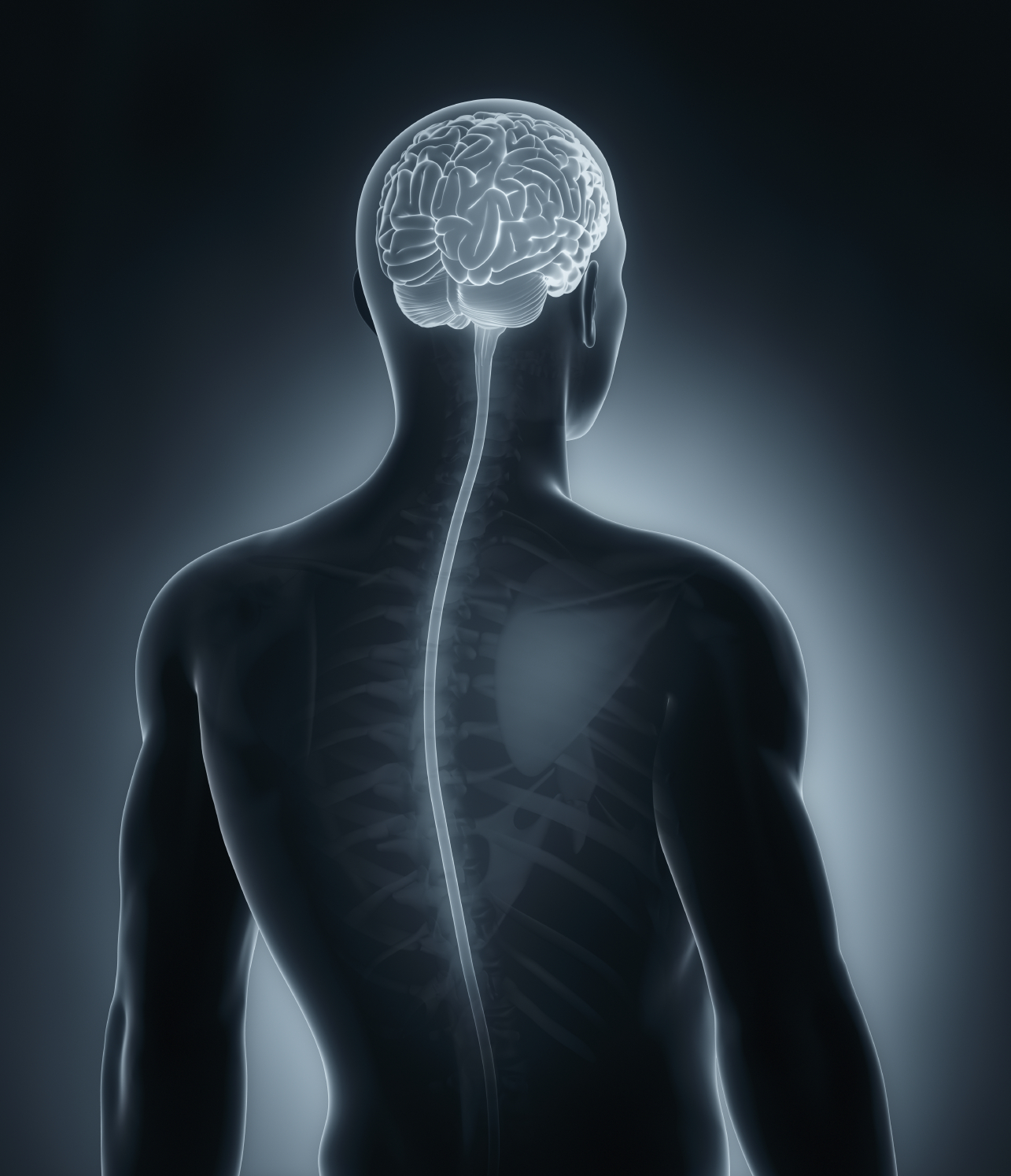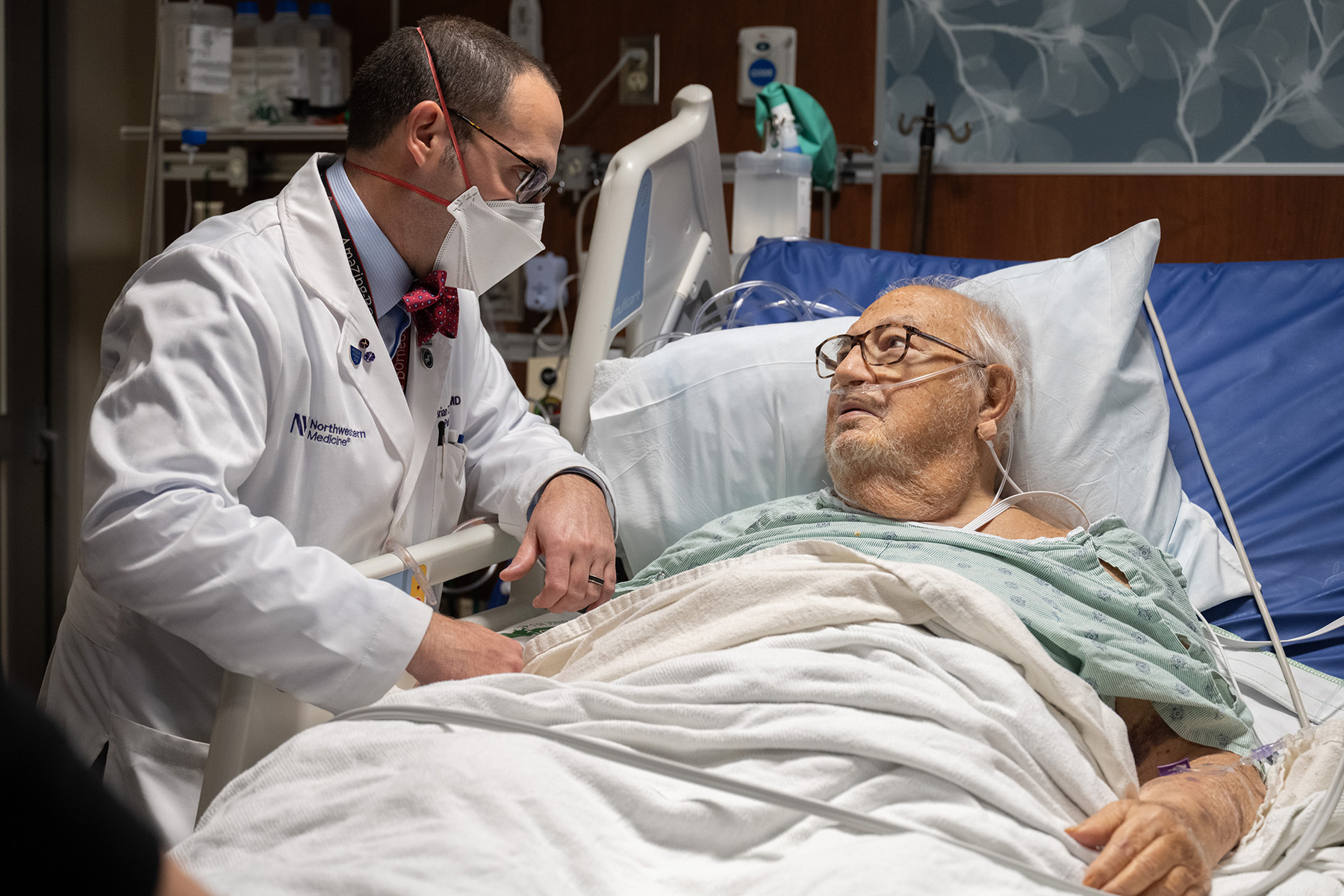Media Coverage
The work done by Northwestern University Feinberg School of Medicine faculty members (and even some students) is regularly highlighted in newspapers, online media outlets and more. Below you’ll find links to articles and videos of Feinberg in the news.
-
The New York Times
–
One Weight-Loss Approach Fits All? No, Not Even Close
He tried, repeatedly, to lose weight with elaborate diet and exercise programs that typically lasted about a week. Finally, he went to Dr. Robert Kushner, an obesity medicine specialist at Northwestern University’s Feinberg School of Medicine. “The first message was that all that matters is calories,” Mr. Scarmardo said. Dr. Kushner insisted that Mr. Scarmardo keep a detailed log of what he ate, weighing and measuring every morsel.
-
U.S. News & World Report
–
How Much Do Doctors Learn About Nutrition?
Already, some progress is being made at the medical school level. “New models like culinary medicine, which teaches medical students how to cook so they can pass along that skill to patients, show real promise,” Katz says. The Goldring Center for Culinary Medicine at Tulane University has set up “teaching kitchens” that provide hands-on training for medical students through culinary medicine classes. (Others such as Rutgers Robert Wood Johnson Medical School, the Northwestern University Feinberg School of Medicine and the University of Massachusetts Medical School have followed suit with similar programs.)
-
The Wall Street Journal
–
Nation’s Death Rate Rises as Progress Against Heart Disease Stalls
Americans are dying from heart disease at a faster rate, stalling four decades of gains against the nation’s leading killer and driving up the U.S. mortality rate overall. Researchers say the obesity epidemic, which took off in the 1980s, is probably mostly to blame for the higher death rate from heart disease, because it has driven increases in rates of hypertension, diabetes and other heart-related problems. “We’re reaping what we’ve sown,” said Donald Lloyd-Jones, head of preventive medicine at Northwestern University’s Feinberg School of Medicine. “It’s a clear causal chain.”
-
New York Magazine
–
How the Way You Breathe Affects What You Remember
Together, the researchers argued, the results suggest that one of the key elements of the fight-or-flight response — the rapid breathing that allows us to supply our bodies with extra oxygen — may also have a mental benefit, helping us both to spot threats quickly and to effectively file them away for later recall. “If you are in a panic state, your breathing rhythm becomes faster,” co-author Christina Zelano, an assistant neurology professor at Northwestern University’s medical school, said in a statement. “As a result you’ll spend proportionally more time inhaling than when in a calm state …”
-
CNN
–
Study: More than a quarter of medical students are depressed, suicidal
Before students start medical school, their quality of life is higher than that of age-matched peers, but after they start, their quality of life quickly becomes lower,” said Dr. Joan Meyer Anzia, residency program director at Northwestern University/Feinberg School of Medicine. Anzia was not involved with the current study. Sadly, the problem doesn’t stop when school ends. “Physicians suicide more than people in any other profession,” Anzia said.
-
Reuters
–
Costs vary for moisturizers used to ease eczema in babies
Without good information on how well different nonprescription skin creams work for infant eczema, parents may want to try petroleum jelly first because it tends to be cheapest, a recent study suggests. Up to one in five children develop eczema at some point, and half of them get this inflammatory skin condition as babies. The condition can lead to rashes, itchy skin and infections when kids scratch, and it’s also linked to other health problems like asthma, allergies, sleep disorders, developmental delays and behavior issues. “Petroleum jelly is an extremely effective moisturizer,” said lead study author Dr. Shuai Xu, a dermatology researcher at Northwestern University in Chicago. “It also happens to be one of the most affordable.”
-
ABC News
–
Surgeons Start Program in Chicago to Train Bystanders to Treat Shooting Victims
The staggering violence in Chicago this year that has led to more than 700 homicides in 2016 alone, according to The Associated Press, which has led to calls for action but also for help in saving lives. A new program called the Chicago South Side Trauma First Responders Course focuses on training anyone to be able to give lifesaving treatment to trauma victims. Started by Dr. Mamta Swaroop, assistant professor of surgery in trauma and critical care at Northwestern University Feinberg School of Medicine, and Dr. Leah Tatebe, a trauma and general surgeon at Advocate Good Samaritan Hospital in New York, the program was designed in the hopes that if simple steps are taken immediately after a shooting or other violent event, lives can be saved before an ambulance even arrives.
-
USA Today
–
Patriots not expecting Rob Gronkowski to return this season
If the new injury is to a disc that had been repaired previously, his recovery timeline could be extended by several weeks, said Dr. Wellington Hsu, the Clifford C. Raisbeck Distinguished Professor of Orthopaedic Surgery at the Northwestern University Feinberg School of Medicine. “Ten years ago, you would have gotten a lot of people that would call this a career-ending surgery, but we know a lot more now that make me optimistic that Gronkowski can fulfill a very promising career,” Hsu told USA TODAY Sports. “However, we can’t take that too far. We can’t get him back to the point where he can be able to play in the Super Bowl.”
-
The Associated Press
–
Can’t Buy Love? Drug Price Hikes Put Sex Beyond Reach
Dr. Lauren Streicher offers women four treatment options, and most pick Vagifem. A month’s supply costs $170 and insurance coverage is limited. A generic version, Yuvafem, just launched at a slightly cheaper price. “They go to their pharmacy and see how much it costs, and then they call me up and say, ‘I can’t do it,’” says Streicher, director of the Center for Sexual Medicine and Menopause at Northwestern University’s medical school in Chicago. But not being able to have sex “is a deal-breaker in a lot of relationships,” she adds.
-
Forbes
–
Team Care Slashes Deaths From Pregnancy In Sickle Cell Anemia
“Without question, any time you can see such a dramatic reduction in maternal mortality rates, it’s a testament to better care,” said Dr. Alexis Thompson in a phone interview. She, who was not involved in the study, is a professor of Pediatrics at the Northwestern University Feinberg School of Medicine, where she heads the program in hematology. “The study underscores the value of providing comprehensive care in sickle cell disease.”






